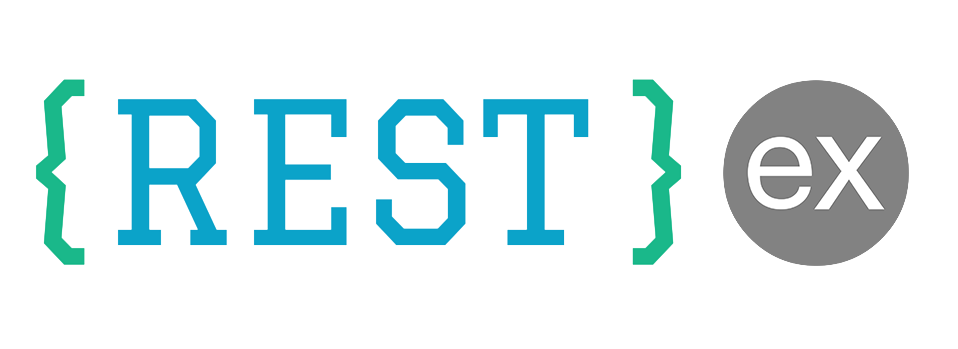Simple and minimalist API wrapper based on top of Expressjs with support mongoose & sequelizejs
Note To: For now I support only mongoose, very soon I'll come with sequelizejs
Requirements
You need Node.js ^7.10.1 installed and you'll need MongoDB installed and running.
const express = require("express"),
RestEx = require("restex");
let app = express()
//Restex connecting to mongodb using mongodb url
let restex = new RestEx(app, {
database: {
provider: "mongo",
conn: {
uri: "mongodb://localhost:27017/mydb"
}
},
controllersPath: path.resolve(__dirname + "/controllers"),//optional
modelsPath: path.resolve(__dirname + "/models"), //optional
routesPath: path.resolve(__dirname + "/routes"),//optinonal
middlewaresPath:path.resolve(__dirname+"/middleware.js") //optional
});
const express = require('express');
const mongoose = require('mongoose');
const RestEx = require("restex");
let app = express()
const mongoose = require('mongoose');
// Basic usage
mongoose.connect(connectionOptions);
const mongooseConnection = mongoose.connection;
// Advanced usage
const mongooseConnection = mongoose.createConnection(connectionOptions);
//Restex connecting to mongodb using mongodb url
let restex = new RestEx(app, {
database: {
provider: "mongo",
mongoose:require('mongoose'),
conn: {
mongooseConnection:mongooseConnection
}
},
controllersPath: path.resolve(__dirname + "/controllers"),
modelsPath: path.resolve(__dirname + "/models"),
routesPath: path.resolve(__dirname + "/routes"),
middlewaresPath: path.resolve(__dirname + "/middleware.js")
});
const express = require("express");
const Sequelize = require('sequelize');
const RestEx = require("restex");
let app = express()
//connect to sqlite database, you also need to in
const sequelize = new Sequelize('sqlite::memory:');
//Restex connecting to mongodb using mongodb url
let restex = new RestEx(app, {
database: {
provider : "sequelize",
Sequelize : Sequelize,
conn: sequelize
},
controllersPath: path.resolve(__dirname + "/controllers"),//optional
modelsPath: path.resolve(__dirname + "/models"), //optional
routesPath: path.resolve(__dirname + "/routes"),//optinonal
middlewaresPath:path.resolve(__dirname+"/middleware.js") //optional
});
path to controllers directory
default : controllers
@type {string}
path to models directory where you define mongoose schemas
default : models
@type {string}
path to routes directory where you define routes for app
default : routes
@type {string}
path to middleware file
default : middleware.js
@type {string}
//user.js
module.exports = function(mongoose) {
let modelName = 'users';
const Schema = mongoose.Schema;
var userSchema = new Schema({
name: String,
email: { type: String, required: true, unique: true },
password: { type: String, required: true },
createdAt: { type: Date },
updatedAt: Date
});
userSchema.pre("save", function(next) {
if (this.isNew) {
this.createdAt = new Date();
} else {
this.updatedAt = new Date();
}
})
userSchema.statics = {
collectionName:modelName // default file name >>user,
}
return userSchema
};
module.exports = function(sequelize,Sequelize){
const modelName = 'user'
const User = sequelize.define(modelName, {
name: { type: Sequelize.STRING },
email: { type: Sequelize.STRING }
});
User.statics = {
collectionName:modelName // default file name >>user,
}
return User;
}
//user.js
module.exports = function(router) {
router.post("/authenticate", "user#authenticate");
};
user >> controller
authenticate >> handler defined in controller
//users.js
const model_name = 'users'// make sure user schema exist in models dir
module.exports = function(restex){
let Dao = restex.dao(model_name)
let authenticate = function(req,res,next){
//Using Promise then & catch
Dao.get({email: req.body.email,password:req.body.password})
.then(user=>{
res.json(user)
}).catch(err=>{
return next(err)
})
// Using async/await
try{
let user = Dao.get({email: req.body.email,password: req.body.password})
}catch(e){
return next(e)
}
}
return {
authenticate
}
}
//middleware.js
module.exports = function(restex){
const middleware1 = function(req,res,next){
const auth = true;
if(auth){
return next()
}
next({status:401,message:'Unauthorized})
}
const middleware2 = function(req,res,next){
/paste your middleware snippet
next();
}
return {
middleware1,
middleware2
}
}
And you can directly use middleware name in routes file
const customMiddleware = function(req,res,next){
returen next()
}
router.get('/users','user#show',{middleware:['middleware1','middleware2',customMiddleware]}
-
Dao.get({email:email})).then(=>{}).catch(=>{}) -
Dao.getAll({company:<company>},{page:1,limit:10}) -
Dao.destroy({email:email}).then(=>{}).catch(=>{}) -
Dao.update({email:email},{name:'Scott Tiger'}).then(=>{}).catch(=>{}) -
Dao.add({email:'[email protected]',name:'Scott Tiger'}
In some case if you need access mongoose Model directly.
const model_name = 'users'
module.exports = function(restex){
let UserModel = restex.model(model_name)
let authenticate = function(req , res,next){
UserModel.findOne({email:req.body.email,password:req.body.password}).lean()
.then(user=>{
res.json(user)
}).catch(err=>{
return next(err)
})
}
return {
authenticate
}
}
by default CRUD api will be created according to collectionName provided in mongoose Schema
userSchema.statics = {
collectionName:'users'
}
GET /users
DELETE /users/:id
PUT /users/:id
GET /users/:id
POST /users
To add middleware option for CRUD api ,add routeOption while defining mongoose model
userSchema.statics = {
collectionName:'users',
routeOption:{
middleware:['middleware1','middleware2']
}
}
git clone https://github.com/sunilmore690/restex-mongo-demo
cd restex-mongo-demo
npm install
npm start
git clone https://github.com/sunilmore690/restex-sequelize-demo
cd restex-sequelize-demo
npm install
npm start

